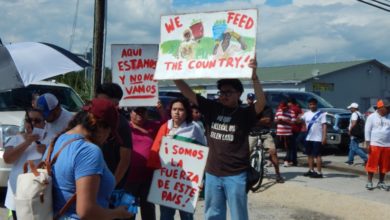On April 10, activists gathered at Curtis Hixon Waterfront Park in Tampa to protest HB1 — Florida Governor Ron Desantis’ draconian anti-protest bill. Activists condemn the anti-democratic legislation as a racist reaction to the Black Lives Matter movement and part of a nationwide push to criminalize protesters and free speech. The bill is likely to become law this week.
“This bill is a result of the massive movement we saw last year and the rebellion for justice for George Floyd,” said David Jones of Tampa Bay Community Action Committee. “They are trying to keep us out of the streets by threatening us with extended charges, extra fines, threatening to lock us up for voicing our opinions and continuing to fight for justice. But we’re going to be out here continuing to demand justice for victims of police brutality and demand real changes in our communities.”
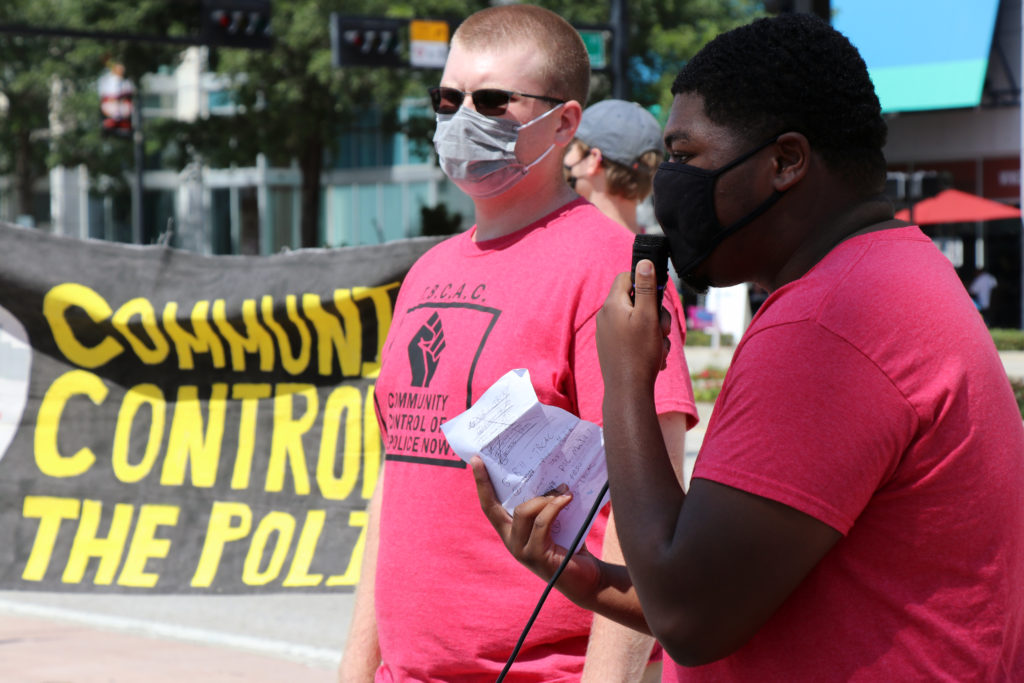
“Currently Ron Desantis is trying to push the bill through, bypassing two Senate subcommittees that were unwilling to engage with it, and forcing an immediate Senate vote. The Florida Senate is the last voting session necessary before the governor gets to sign off on it,” said Bill Aiman of TBCAC.
Under Desantis’ law, peaceful protesters could be charged with third-degree felonies if they are part of a protest causing property damage or in which someone gets injured. They could also be charged with a first-degree misdemeanor if police deem a protest “disorderly” or claim protesters are “harassing” someone in public. These provisions would make protesters easy targets for undercover police and right-wing provocateurs, who often commit crimes or start fights to get peaceful protesters thrown in jail.
Additionally, anyone who organizes or funds a “disorderly” assembly could face extreme fines and penalties under the RICO Act, a federal law designed to target the Mafia and criminal organizations. State benefits and employment could be terminated for people involved in such an assembly, and protesters would not be eligible for bond or bail until their first appearance.
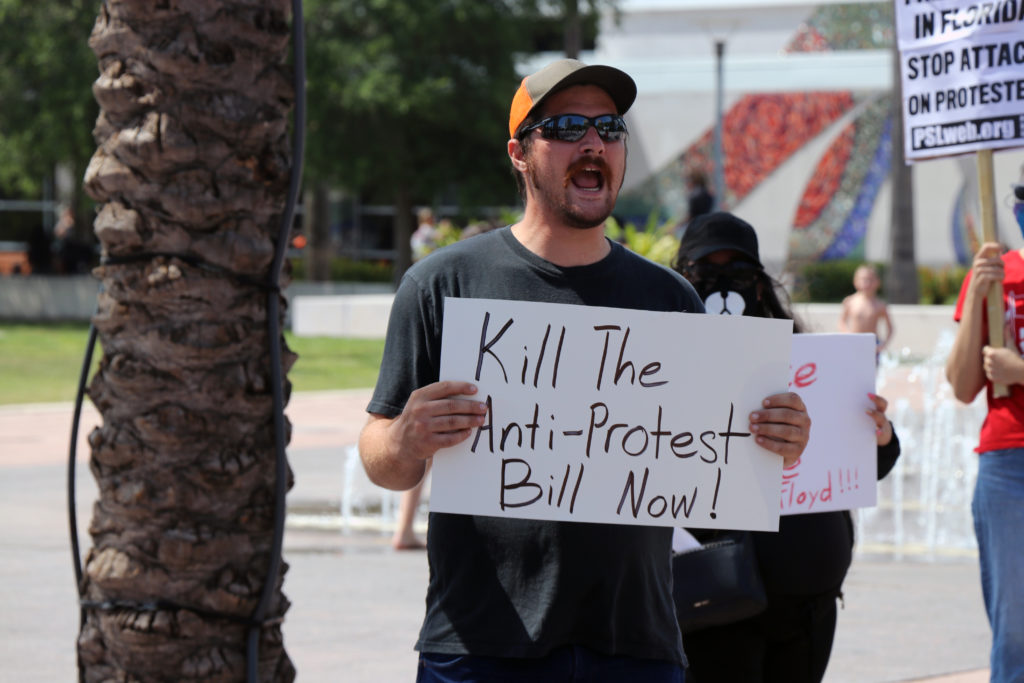
Whether a protest is “disorderly” or not would be left up to the police — even when police are the ones being protested. Further, the law would make it so that no defunding or similar reform to the police is possible at the local level, adding another layer of protection to the growing, militarized police state.
Finally, the law would protect people who use their vehicles to kill or injure protesters on the pretext that they were “fleeing a mob.” Since the 2017 white-supremacist terror attack in Charlottesville, Virginia, when a neo-Nazi plowed his car into a crowd of peaceful protesters, killing one and injuring 19, there have been over a hundred vehicle attacks on peaceful demonstrations nationwide. “Kill the bill before it kills us,” chanted protesters.
Malik Lewis, speaking on behalf of the Party for Socialism and Liberation, echoed the fact HB1 was created in direct opposition to the anti-racist demonstrations that transpired last year. He called the protests in the wake of George Floyd’s murder a “display of solidarity between all working-class people.”
“This bill is a product of capitalism in decay, and we can only expect more bills like these in the future as our current system experiences more crises. Defeating this bill is the first step, but we need systemic change,” said Lewis. “The PSL is united in our belief that capitalism — the system in which all wealth and power is held by a tiny group of billionaires and their state — is the source of the main problems confronting humanity today. It must be replaced by socialism, a system where the poor and working people have power and the wealth of society is used in a planned and sustainable way to meet people’s needs.”
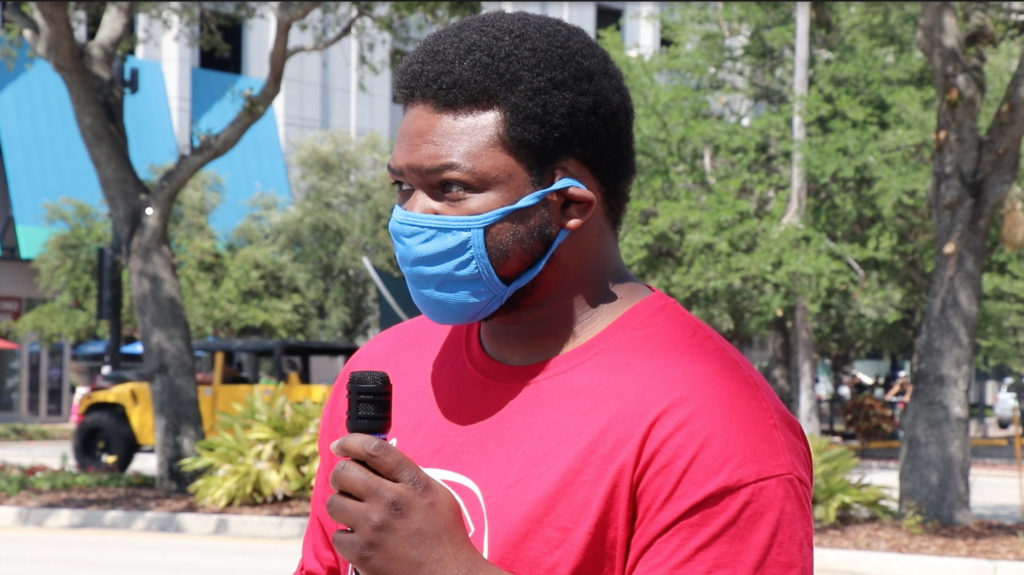
Eithne Silva, speaking for Freedom Road Socialist Organization, called for community control of the police: “We need community control of everything — our communities, the budgets of our cities, our workplaces. … We know that we can’t rely on the courts or the police or the state or any elected representatives to deliver justice. For the people of this country — for African-Americans, for immigrants and for working-class people — the street is the only place where our voices can be heard. That was made clear last summer when they wouldn’t even consider arresting the murderers of George Floyd until millions of people took to the streets.”
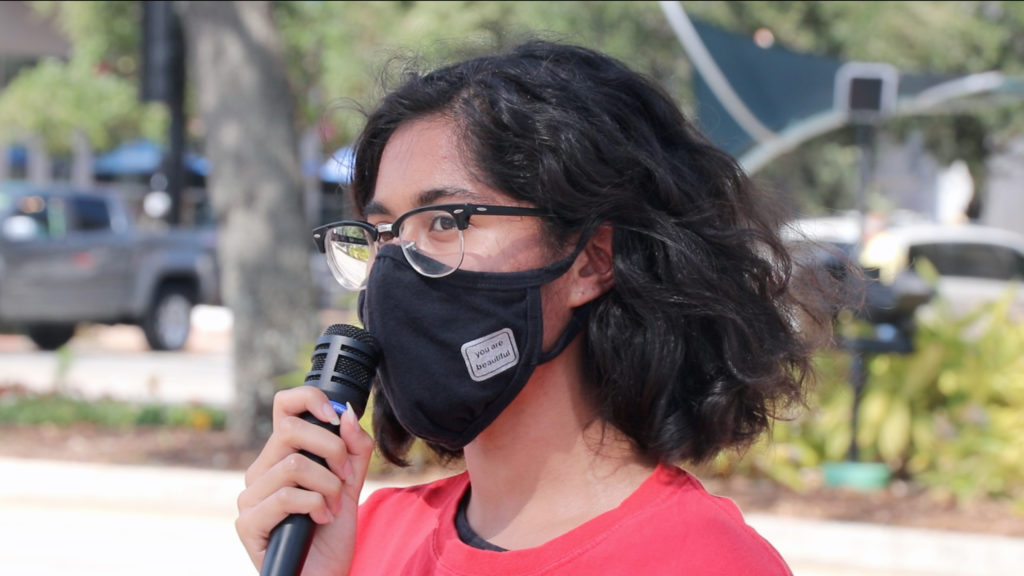
Laura Rodriguez, a member of Tampa Bay Students for a Democratic Society, spoke about the criminalization of protesters in Tampa and at University of South Florida. Last summer, protests sparked by the killing of George Floyd demanded that Tampa defund the police department and set up a police accountability council. Tampa’s response was to bring in busloads of cops and brutally arrest peaceful protesters.
“Rather than address any of the problems Floridians marched for, our government spearheaded a campaign to enact harsher punishments and endanger the lives of Floridians that speak out,” said Rodriguez. “This bill was solely introduced to suppress the Black Lives Matter movement in Florida, and we at USF have experienced the horrors this bill will cause.”
On March 8, several activists — members of SDS and PSL — were arrested for protesting in defense of progressive free speech on USF campus. The protest was called in support of students threatened with arrest and expulsion for protesting the closure of the College of Education, the occupation of Palestine, and ongoing layoffs at USF. A month prior to the arrests of progressive activists, USF police and administration failed to use the same COVID-19 social distancing guidelines against far-right activist Kaitlin Bennett when she came to campus.
“Protesting’s a human right,” they chanted. “How do we save it? Fight, fight, fight.”



